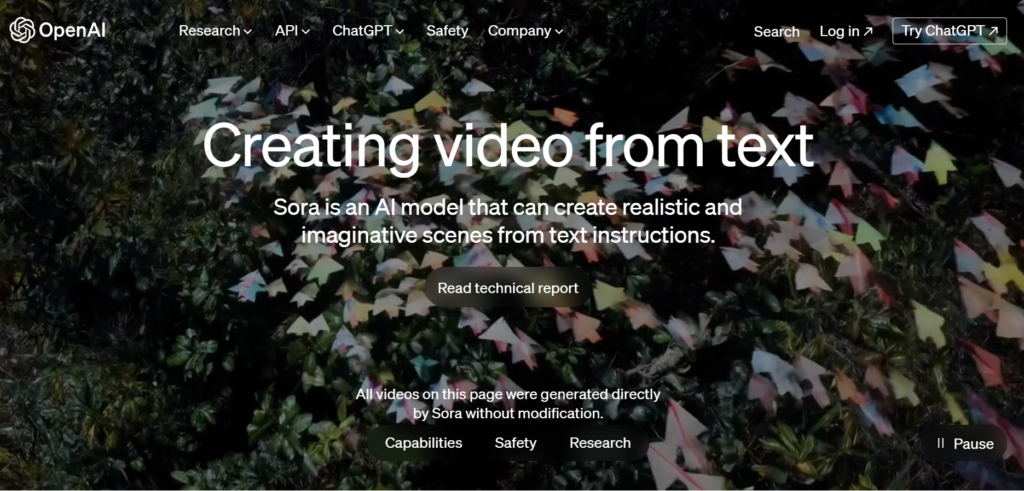OpenAI’s Sora, capable of generating realistic videos from text prompts, holds potential for various applications beyond entertainment. Let’s explore its possibilities and limitations in training simulations, healthcare, and therapy.

Training Simulations:
- Personalized scenarios: Imagine customizable simulations tailored to individual trainees’ needs and learning styles. Sora could generate diverse situations for firefighters, pilots, or medical professionals, enhancing preparedness and decision-making skills.
- Immersive experiences: Virtual environments created by Sora could immerse trainees in realistic scenarios, offering safer and more controlled practice compared to real-world situations. Imagine practicing emergency procedures in a simulated hospital or navigating complex maneuvers in a virtual flight simulator.
- Cost-effectiveness: Creating AI-generated simulations might be cheaper and more scalable than traditional methods, potentially increasing accessibility for training programs.

Challenges:
- Transferability to real world: Simulated environments might not perfectly capture the complexity and unpredictability of real-world situations. Ensuring skills translate effectively is crucial.
- Ethical considerations: Biases in the training data could lead to discriminatory or unrealistic scenarios. Careful curation and oversight are essential for ethical and effective simulations.
- Technical limitations: Current AI capabilities might not accurately replicate all aspects of complex scenarios, especially social interactions or subtle environmental cues.

Healthcare Applications:
- Patient education: Sora could generate personalized educational videos explaining diagnoses, treatment options, or self-care procedures in a clear and engaging way. This could improve patient understanding and adherence to treatment plans.
- Mental health support: AI-generated simulations could provide accessible and confidential platforms for practicing social skills, coping mechanisms, or exposure therapy in controlled environments.
- Drug discovery and development: AI could analyze vast datasets to identify potential drug targets or simulate virtual trials, potentially accelerating the drug development process.

Challenges:
- Patient safety and privacy: Ensuring patient data security and ethical use of AI generated content is paramount. Regulations and robust ethical frameworks are essential.
- Limited interaction and empathy: AI currently lacks the human touch and nuanced communication skills crucial for providing emotional support or complex medical advice.
- Misdiagnosis and overreliance: Dependence on AI without proper human oversight could lead to misdiagnosis or inappropriate treatment decisions.
Therapy:
- Exposure therapy: AI-generated simulations could offer controlled exposure to phobias or anxiety triggers in a safe environment, potentially aiding in therapy.
- Accessibility and affordability: Providing affordable and accessible therapy options, especially in remote areas, could be revolutionized by AI-powered tools.
- Personalized interventions: Tailored scenarios and simulations could address individual needs and anxieties, potentially enhancing therapeutic effectiveness.

Challenges:
- Building trust and rapport: Establishing a therapeutic relationship relies heavily on human connection and empathy, which current AI models struggle to replicate.
- Ethical considerations: The potential for manipulation or emotional harm due to misinterpretations or biases in AI-generated content requires careful consideration and safeguards.
- Human oversight and support: AI shouldn’t replace therapists but rather serve as a tool to augment their work. Human expertise and support remain crucial for ethical and effective therapy.
In conclusion, Sora holds immense potential in training, healthcare, and therapy, but ethical considerations, limitations, and human oversight are crucial. Responsible development, ongoing research, and collaborative efforts are essential to harnessing the power of AI for good and ensuring its safe and effective integration into these sensitive fields.tunesharemore_vert
